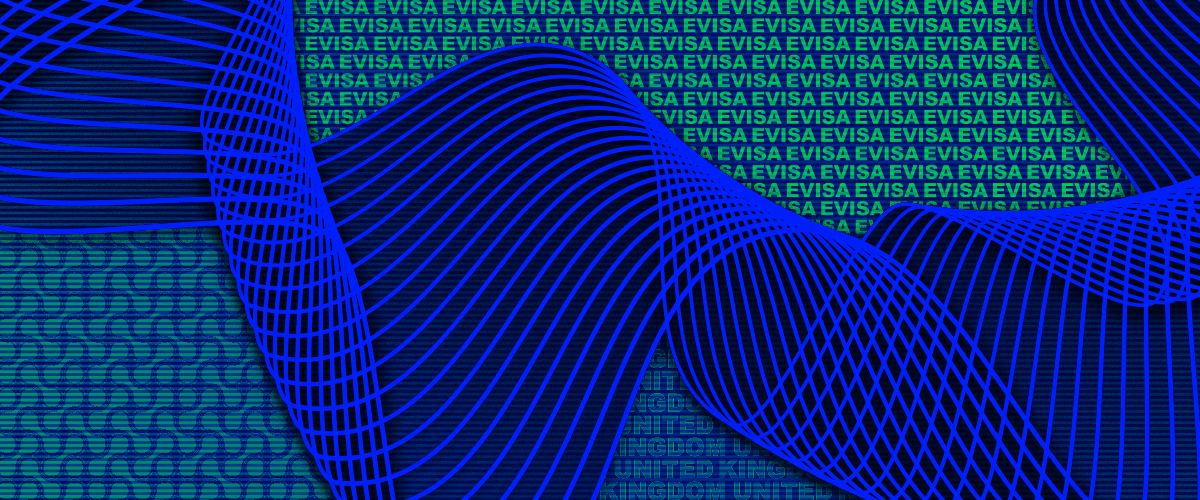Stop the e-Visa scandal
The Home Office’s flawed eVisa scheme means that many migrants can’t prove their right to be in the UK.

What’s happening with eVisas?
Until recently, migrants from outside the EU had physical documents to prove that they and their families could live, work or study in the UK. These could be physical cards such as the biometric residence permit (BRP) or stamps or stickers in their passports.
The Home Office planned to replace these physical documents with eVisas by the end of December 2024. These plans failed and now millions of people are having to use expired documents to prove their right to be in the UK.
Since the scheme was supposed to come into effect on 1 January, some people who have the right to live in the UK have been detained in airport and prevented from boarding planes. Others have lost access to healthcare and benefits. One man was even made homeless because of an error with his eVisa.

Sign the petition
Oppose the digital Windrush scandal and tell the government to stop the eVisa scheme
Take actionWrite to your mp
Tell your MP to ensure migrants have both digital and physical proof of their status
Take actionThe problem with the eVisa scheme
ORG has outlined the key flaws with eVisas in our report E-Visas: Hostile and Broken. In November, the Government announced that people could continue to use previous documents even though they had expired. Months after the scheme was supposed to be implemented, the key issues are:
Technical GLITCHES, data issues AND INTERNET OUTAGES
Many people still cannot access their eVisa even though they have set up an account. Some people have found that the eVisa account can’t recognise their names on their passports (which are identical to the ones on their eVisa accounts), which results in them being locked out of their eVisa account. Others are seeing errors and mistakes which can take months to resolve. All e-Visa holders are vulnerable to Internet outages occuring when they need to prove their immigration status.
The scheme is not accessible for the people it’s trying to target
To create an eVisa account, you need a smartphone, digital literacy and to be able to speak English to a good standard. Migrants may not have a smart phone that can make contactless payments, which is required in order to open a UKVI account. The scheme poses challenges for older people, people with learning difficulties, and people for whom English is not their first language. There is little or no support for those with specific vulnerabilities, such as people experiencing homelessness, older people, those living in care, and those with complex mental health needs.
Harms to refugees
A year after the rollout and more than seven months after reporting the problem, refugees still can’t link their travel documents to their eVisa account, as the system gives them an error message due to the differences in their documents.
REPORT: e-visas, hostile and broken
Read ORG’s report into the UK government’s flawed e-Visa scheme
Find out moreReport: Exclusion by design
Read the joint report into Digital Identification and the Hostile Environment for Migrants
Find out moreStop a digital Windrush scandal
The are some simple steps the Home Office can take to prevent a digital Windrush scandal:
ONE
Allow all migrants to have an optional physical document to prove their immigration status. In March 2025, the Home Office recently updated its guidelines to allow migrants with legacy paper documents to continue using them. This should be extended to all migrants with the right to remain in the UK.
TWO
Exempt refugees with travel documents from linking requirements: Home Office guidelines should clearly state that refugees do not need to link travel documents to their eVisa, as these documents already confirm their right to return to the UK.
THREE
Improve system transparency and accountability: The Home Office must publish its DPIA and equality assessment for the eVisa scheme and not rely on the previous EUSS’s DPIA. Provide proper support for those without digital skills, language skills, or access to a smartphone.
Report problems and get help
The Story So Far
e-Visas: The Next Digital Windrush Scandal
Our report, “Hostile and Broken” released today, explains why e-Visas risk creating tens or hundreds of thousands of errors, with people potentially turned down for jobs, or unable to enter the country, as the result of electronic failures of the new online, real time re-checking inherent in the UK e-Visa scheme.More Information
04 December, 2025
Digital Privacy
Exclusion by Design: Digital Identification and the Hostile Environment for Migrants
The debate over digital ID systems has recently intensified in the UK, with Prime Minister Keir Starmer framing digital IDs as a mechanism to curb ‘illegal working’.
Find Out More
20 November, 2024
Digital Privacy
e-Visas Factsheet
The Problem
From 1 January 2025, people who have right to remain in the UK must have an e-Visas to apply for work, apply to use housing and other services, and to re-enter the UK.
Find Out More
17 September, 2024
Digital Privacy
e-Visas: Hostile and Broken
The e-Visa will be used to demonstrate someone’s ability to enter the UK, to prove their right to work and to access banking, mortgages and secure housing rental agreements.
Find Out More
03 September, 2024
Digital Privacy
Stop the e-Visa scheme and prevent a digital Windrush scandal
What is the e-Visa scheme?
Find Out More
Press Releases
11 December, 2025
Civil society urges the ICO to investigate the Home Office’s failing eVisa system
19 civil society organisations have called on the Information Commissioner’s Office (ICO) to formally investigate data protection breaches and accessibility issues arising as a result of the Home Office’s eVisa scheme.
Find Out More
05 December, 2025
Stressed, Fearful and Excluded: New research exposes harms of digitalising immigration status
New research warns that the digitalisation of immigration status system is causing stress, confusion, and exclusion and placing an unfair burden on migrants to navigate a complex system and resolve errors and glitches that are beyond their control.
Find Out More
06 March, 2025
Home Office announces further delays to the e-Visa scheme
The Home Office has again extended the deadline for implementing its eVisa scheme.
Find Out More
03 December, 2024
Home Office must use e-visa delay to change flawed scheme
Open Rights Group has welcomed reports that the government is set to delay the rollout of its e-visa scheme, which was due to come into effect on January 1, 2025.
Find Out More
17 September, 2024
Broken e-Visa scheme could lead to digital Windrush scandal
A new report by digital rights campaigners, Open Rights Group, has warned that the Government’s e-Visa scheme could lead to a digital Windrush scandal where people who have the right to be in the UK are unable to prove it, with life-changing consequences.
Find Out More

